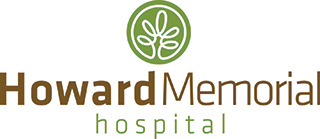Blog
The Building Blocks of Wound Healing
Kickstart your wound-healing journey today by taking steps toward eating a nutrient rich diet

We all know that eating well is good for us. Consuming more colorful fruits and vegetables, salmon, beans, legumes and whole grains improves our health and well-being. So does limiting sugar and eating lean protein, good fats and leafy greens. But what does that have to do with wound healing?
A lot, it turns out. Though often overlooked, good nutrition is extremely important, because wounds must be well-fed to heal. During the healing process, your body is busy adding new tissue, replacing fluids and fighting infection, so it needs increased amounts of water, calories, protein and vitamins.
Water
You need to drink extra fluids to replace fluids lost from your wounds. And if you have a heavily-draining wound, you will need to drink even more. Hydration also helps regulate body temperature and deliver nutrients to cells. Choose your fluids wisely and avoid sugary, caffeinated drinks. Water is the best and least expensive option for hydration.
Calories
Calories provide energy to the body. Because your body requires extra energy to heal a wound, increased calorie intake is an important factor for healing. Did you know that you need about 15 calories per pound of body weight each day during wound healing? For a 150-pound person, this adds up to 2,250 calories a day! If you do not feel you can eat 3 large, calorie-dense meals per day, try eating 5 or 6 small meals or snacks.
Protein
Very important through all phases of healing, protein is required for new cell and tissue growth. Protein also helps fight infection, balances body fluids and carries oxygen through your body. It’s vital that you get adequate protein for wound healing to occur, and increased protein levels have been linked to improved healing rates. Increase your intake by adding various proteins to your diet, like chicken, fish, turkey or eggs. If you are having difficulty getting in the recommended amount of protein, try a protein supplement such as Juven®, Boost®, Ensure® or Carnation®Instant Breakfast. You can also add a tablespoon of peanut butter or almond butter to your supplement to enhance the flavor.
Vitamins
During the healing process, your body needs vitamins like Vitamin C, Vitamin B-complex and Vitamin A. Vitamin C aids tissue repair. Vitamin B-complex helps cell growth and increases the oxygen supply to your wound. Vitamin A helps to decrease the negative effects of any steroid treatment you are receiving for wound healing. You can get these vitamins and more through your diet by increasing your fruit and vegetable intake. Good quality multivitamins can also offer the recommended amount of these vitamins and other minerals, such as zinc, iron and copper.
The Bottom Line
Because wound care is essential to those with wounds, the Howard Memorial Wound Care Center focuses on providing patients with all the tools they need for optimized healing, which also includes nutrition counselling. The wound care specialists at our Howard Memorial Wound Care Center work in conjunction with your primary care provider to create an ongoing dietary plan that promotes wound healing.
Don’t wait! Kickstart your wound-healing journey today by taking steps toward eating a nutrient rich diet. Luckily, you can train your brain and your taste buds to adopt a nutritious diet. Your wounds will thank you.
Posted in: Health